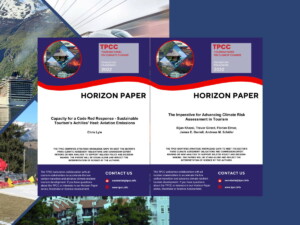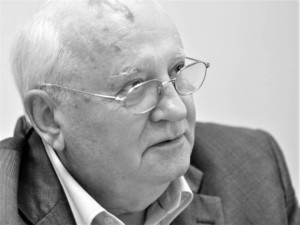Do sustainability awards in long-haul destinations make sense?

Richard Butler wonders why sustainability awards are given to stakeholders in destinations that rely upon long-haul air travel.
In direct reply to “Good Tourism” newsletter #185, Prof Butler wrote:
I wonder why so many organisations supporting ‘sustainable tourism’ offer awards to enterprises in countries where the majority of non-domestic tourists travel long distances by plane to reach such destinations, using large amounts of energy and contributing to unsustainable carbon emissions.
Prof Butler is Emeritus Professor at the Strathclyde Business School in Scotland and the mind behind Butler’s tourism area life cycle (TALC) model, which would be familiar to most people who have studied tourism.
Your correspondent offered Prof Butler the opportunity to expand upon his thoughts by way of a “GT” Insight. He declined but indicated an interest in any responses.
POST UPDATED June 25, 2023. Go straight to it or continue reading …
Do you have any thoughts to share? Register with “GT” and sign up to the “GT” newsletter, then return to this post and refresh it to access the comments functionality below.
So, in “GT” news #186, I published his words and solicited responses by direct reply.
To encourage engagement, I also wrote the following:
My first thought was that any given organisation that is in the business of international travel & tourism may well be fully supportive of, for example, sustainable aviation fuels (SAF), but are not themselves in the business of researching, developing, and producing them.
Perhaps the biggest influence such an organisation could have, if sustainabililty is their ideal, is in making their own operations as sustainable as possible, and encouraging and supporting current and prospective partners and suppliers to do the same.
Alexandra Michat, Chief Purpose Officer at EXO Travel Group, a “GT” Partner, agreed:
As you very rightly pointed out, the biggest influence we at EXO can have is “making our own operations as sustainable as possible and encouraging our current and prospective partners and suppliers to do the same”.
Indeed the intention with [EXO Foundation’s Sustainability Awards] is to recognise and reward organisations and companies that take action in our destinations to promote sustainable tourism and this will ultimately benefit the local communities and domestic travellers.
Wolfgang Georg Arlt responded to Prof Butler:
At the Himalayan Tourism Mart Conference on June 7th in Kathmandu, which I had the pleasure to attend and address, the Tourism Minister of the Maldives gave a good answer to this often-heard argument:
The Maldives are doing everything to make tourism more sustainable, for instance by opening the opportunity for homestays in the community as an alternative to resorts.
There is no other way to reach the Maldives than by air and no source of substantial income for the inhabitants of the Maldives other than tourism.
Are those arguing to stop international flights for leisure suggesting that people in places like the Maldives should starve?
The problem is not flying, the problem is using fossil fuel.
Instead of blaming tourists the pressure has to be brought to the airlines and the jet producers to speed up the introduction of SAF and other options. Electric cars show how fast development can be.
If the European Union, for example, were to declare that from 2033 no aircraft using fossil fuel is allowed to land at a European airport, technology development will speed up accordingly.
The solution is ‘meaningful tourism’, which includes the protection of the environment as one of the six main stakeholder elements but does not forget host communities as one of the other five stakeholders.
Prof Dr Arlt is the CEO of both the COTRI China Outbound Tourism Research Institute and the Meaningful Tourism Center.
UPDATE June 25, 2023: Geoffrey Lipman of “GT” Partner SUNx Malta responded to Richard Butler by direct reply to “GT” news #187, as follows:
1) Because awards are generally not designed by science but by marketing / PR / ad agency types.
2) Because they are generally funded by the advertising / marketing budgets of people that “win” them or want to be associated with them. (This is not just a tourism thing; e.g. why do Rolex watches help you play tennis?)
3) Because it generally works with people so that’s where the big budget returns are.
4) Because we have no reason to demonise flying until the general public catches on to the fact that airline and aviation strategy is to double real emissions by 2050 but “buy” other people’s reductions.
5) Because no one in the massive travel & tourism sector has bought into the IPCC doctrine that to hit anything close to Paris 1.5 we must peak emissions. (Well we do it nauseatingly at SUNx, but we have no marketing or advertising budget.)
Above all Richard is a smart guy. That’s why he asked the question. The smart answer is “Why do you always fish in the same place? Because that’s where the fish are.”
Clearly, there is nuance to be found in the awkward tension between sustainability, long-haul travel, and the best intentions of travel & tourism stakeholders.
Do you have a different perspective?
Do you have any thoughts to share? Register with “GT” and sign up to the “GT” newsletter, then return to this post and refresh it to access the comments functionality below.
Featured image (top of post): Sustainability awards for long-haul destinations? Check box by OpenClipart-Vectors (CC0) and the beach by Walkerssk (CC0). Both via Pixabay.





